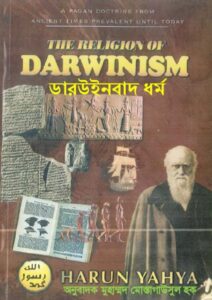
Off-shore gas exploration deal
Nerun Yakub
The Financial Express – 25.06.2011
A super-numerary professor of science at Dhaka University (DU) lost his cool recently when asked to comment on the position taken by the national resource protection committee, vis-a-vis the gas exploration and exploitation deals signed by the government, the latest being with the multinational company, Conoco-Phillips (16 June 2011). Expressing his uncharitable opinion about the ‘communist activists,’ the professor went on to rubbish this committee’s claims that Bangladesh’s experts are quite capable of exploiting its natural resources, given a chance.
‘No, there’s no one up to the task !’ he said vehemently, and refused to be drawn into a rational dialogue. There were at least two others this scribe tried to knock, only to come against the same mental atrophy, as if some mysterious psychological operation (PSYOPS) has been at work to wreck national pride and confidence. ‘Everything’s wrong with us, we can’t do anything right, we are not fit to rule ourselves, look at the silly egos at work in the body-politic etc etc !’
But to be fair, the activists agitating for the protection of the country’s resources certainly deserve to be heard. They have legitimate reasons behind their lack of confidence in the multinational corporations (MNCs) that have been operating here over the past decades. Consider the manner in which ‘competent’ US and Canadian companies had gone about doing their jobs in Magurchara and Tengratila in the late 1990s, the activists remind us. Some 500 billion cubic feet of gas have been lost through huge blowouts, which, at current international rates, amounts to nearly 400 billion taka! Governments in succession would not, or could not, take any initiative to compel the guilty companies to pay up ! Shouldn’t this terrible experience have helped decision-makers draw important lessons ? Mark you, Conoco- Phillips, prior to the merger as well as after it, has had a frightful record of accidents —- in 2004, 2006 and 2008. The latest and biggest blowout has been in Alaska . The committee is rightly anxious that such an MNC should be given two gas blocks, putting at risk the vast wealth and biodiversity of the entire Bay of Bengal.
Conoco-Phillips got the two blocks, 10 and 11 in the Bay of Bengal, on terms and conditions that ultimately translate into actually giving the resources —- and virtually the ownership —- away, says the national resource protection committee which never tires of sharing the jist of the production sharing contract (PSC) with everyone: CP would take 80 per cent of the profits, after ‘cost recovery’, and Bangladesh would be entitled to keep only 20 per cent. But on condition that it constructs a pipeline to the gas field 175 miles into the sea, an endeavour that would cost an estimated US$350 million —- three times CP’s initial investment of US$110 million !
CP would have the right to export any amount of ‘marketable gas’ in LNG form. It would of course pretend to ‘offer’ it to us first which would obviously be far too costly, thus making export a foregone conclusion. CP has also secured the right to extract 7.5 per cent more than the proven reserve, none of which would be really affordable for Bangladesh. As for cost-recovery, even tobacco and toilet tissue are recoverable costs ! Cairn Bangladesh has shown us already how to gobble up everything by inflating costs by as much as 500 per cent ! Watch how Santos and Chevron are pushing up the gas price and further rises await us, warns the committee.
From 1993 onwards Bangladesh’s national organisations and the best minds have been gradually marginalised, to make way for foreign companies to exploit all the valuable blocks on land. The reasoning as usual was: we lack the capital, the technology and the expertise. As national organisations got infested with all kinds of agents, saboteurs and rent-seekers, we ended up buying our own gas from the foreign companies in dollars, paying as much as thirty times more than what our own entities charged for the same! Today, the government is paying nearly 20 billion taka subsidy annually on account of gas, which is almost ten times the money we thought we did not have —- to invest in exploiting our natural resources ourselves, with hired expertise and equipment if need be !
The committee strongly believes, instead of giving a blank cheque to CP we could have, and should have, gone for exploration and exploitation ourselves. Then we could have extracted according to our needs, in economically and ecologically sensible ways. But how would that be possible when a veritable mafia is furiously working away in the opposite direction —- personal profit at the cost of national weal ?
While on the subject it might be instructive to recount the story of Simutong gas field in Manikchari, discovered in 1963 by a British Company. It has taken full 48 years to bring the gas well up to the primary stage for extraction. But why did it take so long for the field to be ‘developed ? Thereby hangs a tale, a tale that should educate sons and daughters of the soil as to how foul resource hunters can be when they want to grab other people’s wealth.
The Simutong field, stretching over 21 acres across Kalapani of Manikchari, had produced gas in 1969 on a trial basis from at least five wells, selling it for use locally for a whole year. But India soon claimed that the Simutong field was connected to an adjacent Indian well. Thereafter it reportedly used agents to prevent the field from being exploited on our side, while it carried on extraction on its own side ! After all, this God-given wealth does not come packed in airtight compartments. Enterprising companies can easily suck the resource out from under adjacent territory.
Mercenary hitmen were allegedly trained by vested interests and employed to destabilise the region. They went on to bomb well No 2, destroying its well head and crippling it. Soon after, the then-East Pakistan was about to be reborn as an independent state and, in the melee, all development activities came to a halt. Bubbles of gas are reported to be still seen escaping from the sunken well. Petrobangla attempted to salvage the wells in independent Bangladesh in 1983 but the hitmen struck again, abducting two of its engineers who, in all likelihood, were killed. Their bodies have not been found nor have any investigations been done till date.
The gasfield was left alone for over a decade. Then followed a series of deals with various companies in 1994, 1997,2000 and 2004, but, it is alleged, all were non-starters, largely due to indecisions on the part of Petrobangla regarding the details of production- sharing. Finally in February 2009 the government decided that Bapex would resume work with a target to extract the resource from 2011. Curiously, it was also decided that instead of using the direct road from the Simutong field through Fatikchori on to Chittagong road, an alternative route was needed. Work on this was stalled for ‘unknown’ reasons and it is not expected to be ready in due time ! Sources say field production might be possible in 2013.
Meanwhile, as ‘further dilatory tactics’, the government has been spreading (mis)information about supposed plans to take the Simutong gas via a 65 kilometer pipeline to the national grid in Chittagong city, which is resented by the hill people. There is a deep suspicion that these irritants are being deliberately generated to prevent the legitimate owners of the resource from enjoying its fruits. How can this go on without the connivance of anti- national quarters and rent seekers of all kinds?









